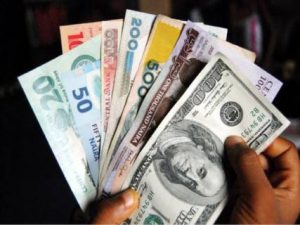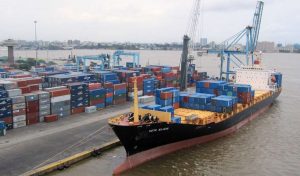Oil Price Crash: Prepare for tough times,’ NNPC tells Nigerians

Nigerians should buckle up and prepare for real tough times in at least the next three months, the Group Managing Director of the Nigerian National Petroleum Corporation (NNPC), Mele Kyari, warned on Wednesday.
Mr Kyari gave the warning amid the global gloom trailing last Monday’s slide in crude oil prices to close to $30 per barrels following the growing impact of the coronavirus pandemic on the world economy.
The NNPC boss, who spoke at the Consultative Roundtable on the economy organised by the Central Bank of Nigeria (CBN), said this warning is based on his experience on how the global oil market works.
“Prepare for trouble for at least three months,” Mr Kyari said in his statement at the event. “Even if the price of crude oil goes back to $58 per barrel, the situation will still be tough, because there is a backlog of production hanging that has to be resolved.
“What that means is that we are going to have the impact of this low crude oil price for some time. The oil market is highly unpredictable. Nobody knows what is going to happen tomorrow.
“There are many forecasts. We said oil will be sold at about $60 per barrel this year. But we are already having $22 per barrel. Nobody knows what will happen next tomorrow,” he said.
Oil Crash
The anxiety generated by the sudden crash of oil prices, Mr Kyari noted, is as a result of the importance of oil in the global economy, “such that when crude oil prices collapse in the international oil market, everything else collapses”.
Nigeria, he said, has the capacity to meet the expectation of raising her oil production to three million barrels per day as well as increase her reserve from the current average of 36 and 37 billion barrels to 40 billion barrels in the next two to three years.
However, he said “much as these are very high expectations that are very possible, Nigeria must continue to produce even at low prices”.

“The market operates in such a way that nobody knows what tomorrow will be. The assumption this year was that $60 per barrel as an average. Now, we are facing a declining situation we have not even seen the bottom.
“It is a huge challenge that creates a cycle of problems for the country that is so difficult to manage, as it involves a huge deficit that will radiate to all sectors of the economy, including the financial sector.
“Today, there are over 12 stranded LNG cargoes globally that have no hope, because there is an abrupt collapse in demand in the oil market associated to the coronavirus. It has never happened.
“This is also affecting other sectors, including liquid crude oil. Today, we have about 50 cargoes with Nigeria crude oil that have not found landing. This means traders have purchased them, but do not know where to take them,’ he said.
Global glut
He said the crisis is affecting operators in other jurisdictions, citing Saudi Arabia and Iraq, which have already crashed their prices by $8 and $5 respectively in response to the crisis.
The two countries, he said, could afford to do that because their production cost is low, “unlike Nigeria which belongs to the group whose production processes involve about $15- $17 cost per barrel”.
“So, when country’s crude oil is selling for $30 per barrel, and circumstances are forcing the country to drop the price by $8, it means in the market the country will be selling for $22 per barrel. That’s a massive problem.
“That can be tolerated in some production environment, like Saudi Arabia where their average production cost is about $4 to $5 to the barrel. But, not in Nigeria.
“Today, the best of our production processes allows about $15- $17 cost per barrel. Some others are as high as $30. Nigeria is one of those jurisdictions.
“When crude oil price has gone down to $32 per barrel and you are producing at $30, you don’t need a soothsayer to tell you, you are out of business already,” he said.
Beyond challenge
Beyond low prices, he said competition will ensure those producing at lower cost will continue to have patronage from buyers, “which is why the depression as a result of the impact of the coronavirus will be felt for a long while to come, at least three months”.
The Roundtable, which had as its theme: “Going for Growth 2.0”, was hosted by the CBN governor, Godwin Emefiele and attended by the Minister of Finance, Budget and National Planning, Zainab Ahmed, along with her counterparts in the ministry of transportation, Chubuike Amaechi, and ministry of power, Babatunde Fashola.
Others in attendance were the Managing Director of the Nigerian Sovereign Investment Authority (NSIA), Uche Orji and the Chairman of the Dangote Group, Aliko Dangote, as well as chieftains of banks and industries.
Meanwhile, in his introductory remarks, the CBN governor said the roundtable, which is the second in the series, was organised to allow Nigerians from all sectors to come together to pull ideas together to find the solution to the challenge posed by the global crisis.

He said resolutions from the different syndicated groups formed to discuss the crisis would be submitted to President Muhammadu Buhari later today.
The syndicated groups include Power and Energy Networks; Roads, Rails Port, and Airports; Broadband and Technology; Unlocking the Agriculture Value Chain; Financing the Plan; Monetary and Fiscal Policy; Coronavirus and the Economy and Promoting Economic Growth through Lending and Financial Inclusion.









